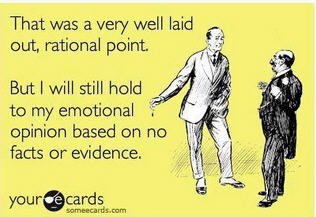Do You Work With Someone Difficult
Here is a sneak peak of my Master Class for this Friday’s Millennial Leadership Summit in Philadelphia:
How many of you work with someone you would describe as “difficult”?
Workplace conflict is common. Stats confirm this:
- 60-80% of difficulties in organizations stem from strained relationships, not from a lack of skill or motivation.
- Over half of all workers feel their boss doesn’t respect them as a professional equal.
- Companies with high trust levels—honesty, transparency, reliability—outperform companies with low trust levels by 186%.
Conflict is a drain on the bottom line. It’s a drain on . And, managed ineffectively, it’s a drain on your physical and mental health.
You’re probably good in conflict situations. But are you strategic?
We have Chronic Mindsets, built over the years by our culture, identity narrative, and worldview, which make us trend toward different methods for solving problems, and not always the best method. And sometimes, we even fall into power-conflict traps.
Instead, we must be Strategic…
Here is the process:
When in conflict, DO THIS:
- Identify your goal
- Answer three questions: Do I need the other person to achieve my goal? Is the other person, generally speaking, with me or against me? Within the organization, do I have more or less power than the other person?
3. Deploy the correct Strategy
Pragmatic Benevolence – higher power, positive interdependence
Cultivated Support – lower power, positive interdependence
Constructive Dominance – higher power, negative interdependence
Strategic Appeasement – lower power, negative interdependence
Selective Autonomy – independence
Use one of these self-explanatory tactics
PB – Build up emotional bank account; Be slow to say “no”
CS – Cultivate constructive coalitions; Bring solutions
CD – Clarify authority; Use soft power to buffer hard
SAp – Turn invisible; Placate the oppressor
SAu – Deliver extraordinary value; Develop a niche
For more on conflict intelligence, refer to the source for it, Making Conflict Work,written by Peter T. Coleman and Robert Ferguson.
2 Responses
Leave a Reply
You must be logged in to post a comment.


I visit every day some web sites and sites to read content, but this blog gives feature based posts.
Helpful information. Lucky me I found your web site accidentally, and I’m stunned why this accident didn’t came about earlier! I bookmarked it.